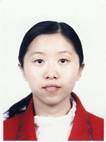|
Skill Learning and Control Design for Robot Manipulation
With the continuous expansion of robot applications, robots are often faced with unknown, dynamic and unpredictable complicated environment. Compared with conventional methods such as traditional programming, teleoperation and demonstration, the robot manipulation skill learning method enables the robot to have certain decision-making and learning capabilities, and dynamically adapt to many unstructured working environments or workplaces with changing scenes. It is the basis for robots to be widely used in various fields. The development of artificial intelligence technology provides a new method for the learning of robot manipulation skills and opens up new ideas. Therefore, research based on how to make the robot's operational skills learning more efficient, and how to make the learned manipulation skills strategies more generalizable, will also promote the development of machine learning and artificial intelligence technology. Various control technologies are applied in the field of intelligent robot, including fuzzy control, neural network control, expert control, etc. In practical application, a number of control technologies are often integrated to realize functions of intelligent robot. The exploration and research of intelligent robot control technology can effectively promote the development of intelligent robot control technology, automatic production and service technology.
Topics include, but are not limited to:
- Manipulation skill learning
- Learning from Demonstration/ Imitation learning
- Reinforcement learning
- Small sample learning
- Human-robot skill transfer
- Decision making
- Dynamic movement primitives
- Gaussian mixture model
- HMM/HSMM model
- Fuzzy logic/Neural network control
Organizers:
 Chenguang Yang received the Ph.D. degree in control engineering from the National University of Singapore, Singapore, in 2010. He was a Post-Doctoral Fellow with the Imperial College London, London, U.K. Dr. Yang received the Best Paper Awards from the IEEE TRANSACTIONS ON ROBOTICS and a number of international conferences. He is a recipient of EU FP-7 Marie Curie International Incoming Fellowship (individual), Fellow of British Computer Society and Fellow of Higher Education Academy. His research interests include robotics and automation. Chenguang Yang received the Ph.D. degree in control engineering from the National University of Singapore, Singapore, in 2010. He was a Post-Doctoral Fellow with the Imperial College London, London, U.K. Dr. Yang received the Best Paper Awards from the IEEE TRANSACTIONS ON ROBOTICS and a number of international conferences. He is a recipient of EU FP-7 Marie Curie International Incoming Fellowship (individual), Fellow of British Computer Society and Fellow of Higher Education Academy. His research interests include robotics and automation.

Min Wang (Member, IEEE) received the B.Sc. degree in mathematics and the M.Sc. degree in applied mathematics from Bohai University, Jinzhou, China, in 2003 and 2006, respectively, and the Ph.D. degree in system theory from Guangzhou University, Guangzhou, China, in 2009. She was a Visiting Scholar with the Department of Computer Science, Brunel University London, Uxbridge, U.K., from 2017 to 2018. She is currently a Professor with the School of Automation Science and Engineering, South China University of Technology, Guangzhou, China. She has authored or coauthored over 40 papers published in international journals. Her current research interests include intelligent control, dynamic learning, robot control, and event triggered control. Prof. Wang is currently an Associate Editor of the International Journal of Systems Science, IEEE ACCESS, and Control Theory and Applications.
Submit Now
The online submission system: click to submit
You need an account, if you don't have, you can register first.
|